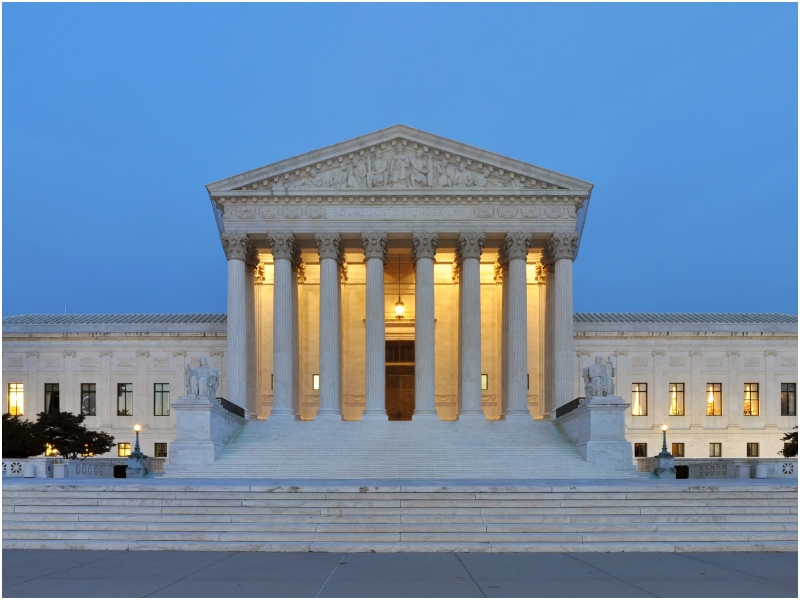The Supreme Court will have an opportunity to further erode the authority of federal regulatory agencies in a case involving the vape industry, following other major rulings.
As the justices prepare for a new term featuring significant business-related questions, they will address these issues over a nine-month period beginning on October 7.
This term will also include cases involving tech giants Nvidia and Meta’s Facebook, which could create challenges for private plaintiffs pursuing securities fraud lawsuits in federal courts.
The vape industry case represents the latest front in a broader effort to roll back regulatory authority. Conservative groups and business interests have welcomed efforts to weaken the federal agency bureaucracy, which interprets laws, crafts federal rules, and implements executive actions.
In a June 28 decision, the Supreme Court’s 6-3 conservative majority overturned the “Chevron deference” legal principle. Established 40 years ago, this principle had required judges to defer to federal agencies in interpreting laws under their jurisdiction.
That case involved an industry challenge to a U.S. regulatory agency’s fish conservation program.
While the new case may not carry the same high stakes, it still provides conservative justices with an opportunity to scrutinize the U.S. Food and Drug Administration’s (FDA) decision to deny applications for the sale of flavored vape products.
In June, the Court also issued rulings against actions taken by the Securities and Exchange Commission (SEC) and the Environmental Protection Agency (EPA). Other cases challenging federal agencies could potentially reach the justices during this term.
The court will review the FDA’s appeal of a lower court ruling, which found that the agency failed to follow proper legal procedures when it denied e-cigarette liquid makers Triton Distribution and Vapetasia permission to bring their nicotine-containing products to market. These companies had filed FDA applications in 2020 for products with flavors such as sour grape, pink lemonade, and crème brulee, with names like “Jimmy The Juice Man Strawberry Astronaut” and “Suicide Bunny Bunny Season.”
Although the FDA insists that it has not categorically banned flavored e-cigarette products, it requires companies to meet a high legal standard for approval. According to an agency court filing, flavored products pose a “known and substantial risk to youth.” To date, the FDA has approved only 27 e-cigarette products, all of which are tobacco or menthol flavored, while denying more than a million other applications.
Professor Karen Woody of Washington & Lee University School of Law remarked that the FDA case represents another challenge to agency authority, aligning with last term’s cases that stripped various powers from agencies or left them more vulnerable to legal challenges. The court has not yet set a date for arguments in the case.
In addition to the vape industry case, the justices will consider separate efforts by Facebook and Nvidia to defend themselves against federal securities fraud lawsuits. The Supreme Court has already weakened the SEC, which polices securities fraud, and these cases could further hinder private litigants seeking to hold companies accountable for alleged fraud.
According to Ann Lipton, a professor at Tulane Law School, these cases provide the Supreme Court with opportunities to either narrow or widen the scope of federal fraud claims. Facebook and Nvidia have filed appeals after a lower court allowed class action securities fraud lawsuits to proceed against them.
On November 6, the court will hear arguments in Facebook’s bid to dismiss a lawsuit accusing it of misleading investors in 2017 and 2018 about the misuse of user data by the company and third parties. A week later, on November 13, the court will consider Nvidia’s attempt to dismiss litigation accusing the company of misleading investors about the extent of its sales to the volatile cryptocurrency industry.
Professor Woody noted that the business community should take these cases seriously due to the high stakes involved. She expects the court to rule in favor of both companies and has joined a court brief supporting Facebook. Woody suggested that these rulings could lead companies to disclose more information, which would reduce the burden on plaintiffs in class action cases, potentially increasing liability exposure for businesses.
Benjamin Edwards, a professor at the University of Nevada, Las Vegas, observed that the previous term’s rulings continue to reverberate. He predicted that the business community will need to adjust to the new legal landscape in the coming years.
Anat Alon-Beck, a professor at Case Western Reserve University School of Law, added that the business community will likely seek to build on its recent successes in limiting the ability of regulatory agencies to create and enforce rules on industry.

